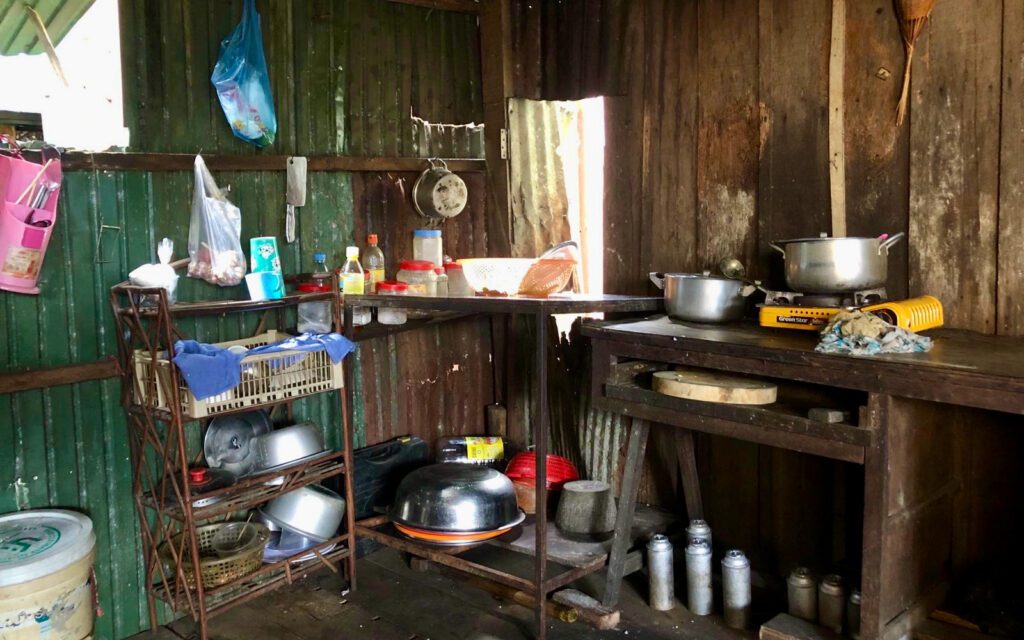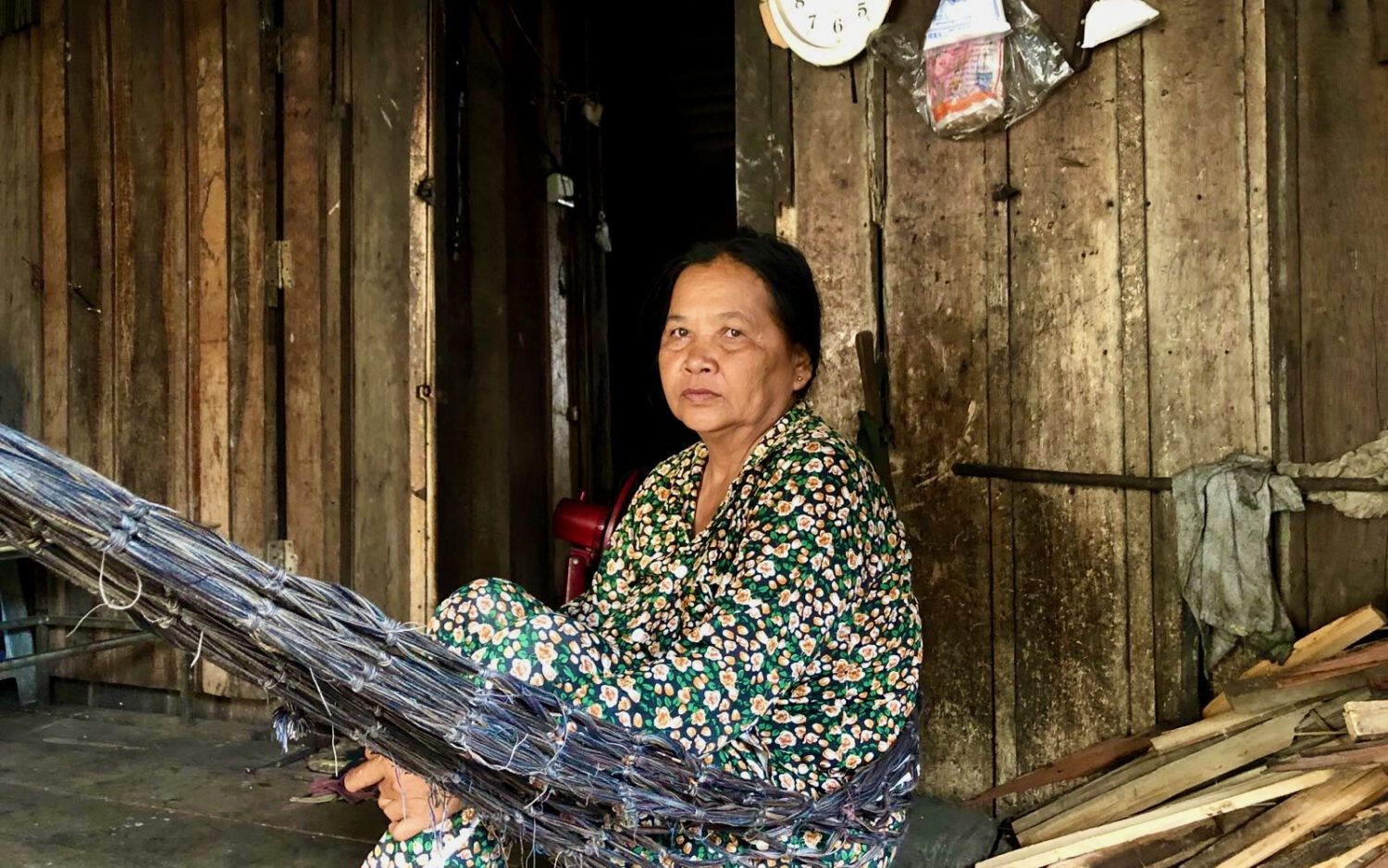Kuong Sophat, 60, lives along Phnom Penh’s railway line in Daun Penh district. She rents a small wooden house with her 35-year-old daughter and two grandchildren. Covid-19 hit the family hard in 2020 — and two years later, Sophat said the struggles hadn’t gone away.
“We still eat less now to save money for rent. It’s still hard to earn money,” she said.
In a report issued Monday, the World Bank said some 460,000 Cambodians had fallen back into poverty due to Covid-19, based on the government’s revised poverty line of around 11,000 riel per day for Phnom Penh residents. The World Bank report says households’ most frequent coping method was to cut back on food expenses. During the pandemic, 89% of IDPoor households reduced food consumption, as did 65% of all Cambodian households, according to two cited surveys.
In Srah Chak commune, Sophat had it hard. “We skipped either breakfast or dinner. We used to eat one egg all together for one meal to save food for the next day,” she said of her family of four.
The family spent around $1.25 a day on food — about half of what they used to spend. They ate mostly eggs, noodles and canned fish, Sophat said.
“We felt tired and hungry,” she recalled.
Sophat’s daughter is the family’s main breadwinner, selling desserts of beans and coconut milk or sticky rice cake on her bicycle.

According to Sophat, before Covid-19 her daughter could earn around $7.5 a day. But now she still only makes $2.5-$5. Some days are even less than that, and after spending $1.75-$2 daily on food, it was hard to save enough to pay their rent of $60 a month.
But it was still better than Covid-19 lockdowns, when her daughter could not even go out to sell the desserts, Sophat said.
The World Bank report notes that Cambodia’s economic recovery has been uneven, with poorer households finding it harder to get back on track.
“COVID-19 has affected low-skilled workers, informal workers, and low-income households more than proportionately and Cambodia’s uneven economic recovery further risks slowing the pace of household recovery,” it says.
Kampong Cham’s Stung Trang district referral hospital director Yim Navy said on Tuesday that eating poor quality food risked long-term health problems, such as blood pressure, though he had yet to see direct impacts among his patients of malnutrition caused by Covid-19.
Him Phalla, 38, also lives by the railway in Phnom Penh’s Srah Chak commune.
During the pandemic, she was unable to go out to sell cockles as normal, while her two oldest children, aged 15 and 17, could not work cleaning restaurants. Only her security guard husband was able to earn an income for the couple and five children.
“We ate what we had, and there was not much food on the table. There was a mix — sometimes we had eggs and noodles. And sometimes we had vegetables. We had meat if my relatives brought some for us.”













